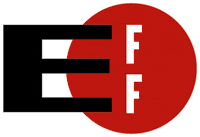Mindful of the fact I don't seem to read enough these days, I've set myself a challenge: to read all of the 2009 nominees for the Hugo Award for Best Novel. The Hugo is one of the top prizes a science fiction author can receive, and they awarded annually at Worldcon, the annual convention of the World Science Fiction Society. As an added bonus, this year's Worldcon, Anticipation, will be in Montreal, and I'm thinking about going.
This year's nominees for Best Novel are:
- The Graveyard Book by Neil Gaiman, a juvenile fantasy in the vein of The Jungle Book that has already won the John Newbery Medal.
- Little Brother by Cory Doctorow, a young adult novel about a group of teenagers fighting the attempts of their government to curtail personal freedoms in the wake of a terrorist attack. Think of the movie "Hackers" only a) the methods and technologies described are heavily grounded in realism and b) the enemy is a government security apparatus overstepping its bounds and shifting blame for its criminal activities onto libertarian-minded tech-saavy adolescents, instead of an evil corporation.
- Saturn's Children by Charles Stross, a space-opera tale of sentient robots, continuing to live, work and play in a solar system-spanning society, long after their human Creators (i.e., us) have died out.
- Anathem by Neal Stephenson, about monastic societies that preserve knowledge and learning in the face of societal collapse, and conflict with the secular authorities about what knowledge should be revealed. (The basic premise sounds similar to the venerable science fiction classic, A Canticle for Leibowitz.)
- Zoe's Tale by John Scalzi, whose plot is contemporaneous with the third novel in his acclaimed "Old Man's War" universe, The Last Colony, with events related from the perspective of the titular 16-year-old protagonist.
Thus far I've read The Graveyard Book and Little Brother, and am almost halfway through Saturn's Children. Initial impressions:
- Graveyard Book is textbook Gaiman, with an original premise, interesting, well-detailed characters, a moving plot, and a somewhat lacklustre ending. It's definitely recommended--even on his worst days Gaiman writes circles around the rest--but I didn't find it as compelling as say, American Gods or Neverwhere.
- Little Brother is extremely fascinating, but also extremely didactic, and reads more of a combination of libertarian political manifesto and how-to manual for subverting government surveillance than novel. In other words, it's the novelization of Doctorow's personal ideology as regularly expressed on his site and the BoingBoing shared blog. Some might see that as interfering with the narrative, but science fiction is about exploring ideas. Using novels as soapboxes didn't stop Robert A. Heinlein from winning five Hugos either.
- Saturn's Children is an engaging read so far, but not exactly compelling or innovative. To his credit, Stross considers SC to be the weakest of his last six novels (all nominated for the Hugo) and hopes to improve his record for most consecutive nominations without a win
- Typical for him, Stephenson's book comes close to a thousand pages of dense prose and fabricated terminology, so I'm thinking I'll have to listen to Anathem on audiobook.
- I don't feel right reading Zoe's Tale, the fourth book to be set in the "Old Man's War" setting, without some background so I'm going to attempt to read the other three first. I will certainly work on the first one, Old Man's War, as it is considered a modern sf classic.
Incidentally, Stross's blog post on his nomination seems to set the same tenor that all the authors have expressed: All of them are falling over with praise for each other (well, except maybe Stephenson, who doesn't seem to blog). Part of me wants to be at Worldcon when the award is announced, on the chance they'll all be there, and will go into a big group hug as the winner is announced, and cry tears of joy collectively (because there's nothing sexier than half a dozen geeks tearfully embracing--and I speak from experience).
More updates to follow!
